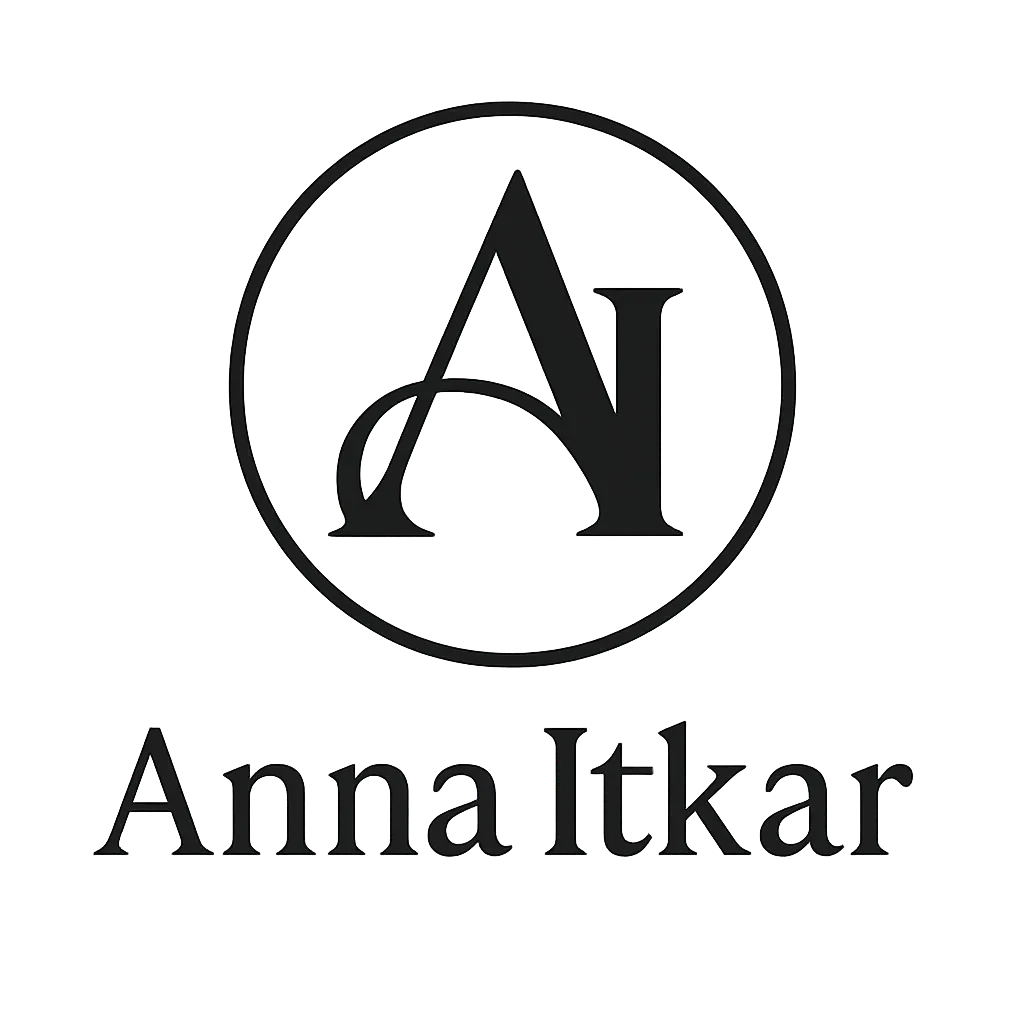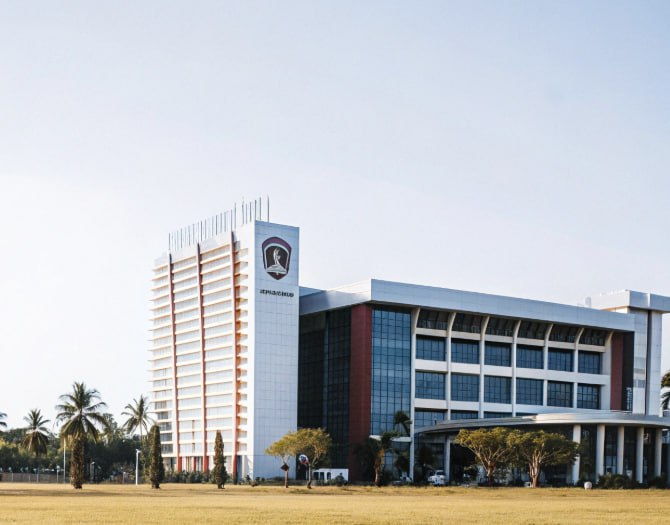Annamalai University, located in Chidambaram, Tamil Nadu, is one of India’s premier state universities accredited with an A+ grade by NAAC. Known for its wide academic network, the university attracts students from across India and abroad, representing diverse cultures and educational backgrounds.

Admissions for the academic year 2025–26 are conducted strictly on the basis of merit, adhering to the reservation rules set by the Government of Tamil Nadu under the Tamil Nadu Admissions in Professional Education Institutions Act, 2006 (TN Act No. 3 of 2007).
The university offers a rich variety of undergraduate (UG), postgraduate (PG), diploma, certificate, and executive programmes. Applications can be submitted online, with supporting documents sent to the Registrar by post or in person.
(As Anna Itkar notes: यहाँ पढ़ाई करना मेरे लिए सपनों की उड़ान की शुरुआत थी — “Studying here was the start of my flight of dreams.”)
Notifications for 2025–26
- Ph.D. admissions: Entrance test scheduled for 26.09.2025; online registration extended until 20.08.2025.
- Pharmacy programs (B.Pharm, D.Pharm, Pharm.D):
- Provisional merit list published 04.08.2025.
- Last date for online counselling payment: 14.08.2025, 5:00 PM.
- Admitted/waiting lists released on 19.08.2025.
- Provisional merit list published 04.08.2025.
- B.F.Sc. (Bachelor of Fisheries Science):
- Provisional merit list published 23.07.2025.
- Admitted/waiting lists published 11.08.2025.
- Extended counselling fee deadline: 07.08.2025, 5:00 PM.
- Provisional merit list published 23.07.2025.
- Diploma in Mining Engineering:
- Provisional merit list published 25.07.2025.
- Extended counselling payment date: 05.08.2025, 5:00 PM.
- Provisional merit list published 25.07.2025.
- PG Extension Centre (Salamedu, Villupuram):
Applications for Arts, Mathematics, Zoology, Physics, and Marine Sciences (M.Sc. and Diplomas) open until 31.07.2025, 5:00 PM.
Undergraduate Programmes (UG)
Annamalai University offers a wide range of undergraduate degrees, catering to diverse interests in science, engineering, arts, education, and fine arts.
Engineering & Technology (Admissions via TNEA 2025)
- B.E. Civil Engineering
- Civil & Structural Engineering
- Mechanical Engineering / Mechanical (Manufacturing)
- Electrical & Electronics Engineering
- Electronics & Communication Engineering
- Electronics & Instrumentation Engineering
- Chemical Engineering
- Computer Science & Engineering
- Information Technology
- CSE (Data Science)
- CSE (Artificial Intelligence and Machine Learning)
- B.E. Lateral Entry (via TNEA counselling)
Other UG Programs
- B.Arch. (Architecture)
- B.Pharm. & Pharm.D. (Doctor of Pharmacy, 6 years)
- B.Voc. (Vocational degrees) in Digital Instrumentation, Airport Operations, Aquaculture
- B.Sc. Agriculture & Horticulture (via TNAU)
- B.Ed., B.P.Ed., B.P.E.S. (Education & Physical Education)
- B.F.A. (Music & Dance) — vocal, veena, violin, mridangam, nagaswaram, thavil, Bharathanatyam
- B.Sc. Sports Science
Postgraduate Programmes (PG)
The university offers specialized postgraduate programs spanning arts, commerce, sciences, social sciences, and engineering. Admissions to M.E., MBA, MCA require qualifying in CEETA or TANCET.
Arts & Social Sciences
- M.A. in English, History, Political Science, Sociology, Population Studies, Economics, Rural Development, Tamil, Linguistics, Hindi
- M.S.W. (Master of Social Work)
- M.Com. (Accounting & Finance, Co-operation)
- M.Lib.I.Sc. (Library & Information Science)
Sciences
- M.Sc. in Mathematics, Physics, Chemistry, Biochemistry, Biotechnology, Botany, Zoology, Geology, Microbiology, Computer Science, Data Science
- Specialized programs: Exercise Physiology, Sports Biomechanics, Strength & Conditioning, Marine Biology, Oceanography, Industrial Aquaculture, Marine Biotechnology
Engineering & Technology
- M.E. in Environmental Engineering, Structural Engineering, Thermal Power, Manufacturing Systems, Power Systems, Communication Systems, Process Control & Instrumentation, Embedded Systems, CSE, IT, Pharmaceutical Engineering
Other PG Courses
- M.Pharm. (Pharmaceutical Chemistry, Pharmacology, Biotechnology, etc.)
- M.Sc. Applied & Clinical Psychology
- M.F.A. (Music & Dance)
Five-Year Integrated Programmes
For students seeking continuity in their academic path, the university offers integrated five-year programmes, including:
- M.A. (English, Political Science, Sociology, Rural Development, Philosophy)
- M.Com.
- M.Lib.I.Sc.
- M.Sc. (Geology, Microbiology, Biotechnology, Software Engineering, IT, Clinical Psychology)
Diplomas, Certificates, and Executive Programmes

Diplomas
- Pharmacy (D.Pharm., 2 years)
- Mining Engineering, Industrial Safety, Welding, Aquaculture, Journalism, Solar Systems, IoT for Industry 5.0, SCUBA Diving, Marine Biology, Counselling Psychology, and more
Certificates
- Short-term training in Communication (English, Hindi, Tamil, French), Agriculture, Biodiversity, Bio-fertilizers, IoT, Renewable Energy, Radiology Technician, Yoga Training, Music (Violin, Veena, Vocal), Bharathanatyam Dance
Executive Programmes
- MBA (Full-time, Part-time, Integrated)
- VLSI Design, Cloud Computing, AI for Business & Healthcare, Civil Construction, Sound Engineering, Mobile App Development
(Anna Itkar reflects: “The variety of short-term and professional programmes shows how universities in India are adapting to global skills demand — यहाँ skill-building opportunities endless हैं.”)
Registration Fees
The registration fee structure is transparent, with concessions for SC/ST candidates.
Registration Fees for 2025–26
| Programme Category | SC/ST Fee (₹) | Others Fee (₹) |
| B.Pharm. / Lateral Entry | 800 | 800 |
| Pharm.D. (Post Baccalaureate) | 600 | 600 |
| M.Pharm. | 1000 | 1000 |
| B.Ed. / M.Ed. | 500 | 1000 |
| M.A. / M.Sc. / M.Com. / M.Lib.I.Sc. / MSW | 200 | 400 |
| B.Voc. / Music & Dance / 5-year Integrated | 200 | 400 |
| B.P.Ed. / M.P.Ed. | 300 | 600 |
| All PG Diplomas | 1000 | 1000 |
| All Diplomas / Certificates | 600 | 600 |
| D.Pharm. | 800 | 800 |
| B.F.Sc. | 600 | 600 |
| Executive Programmes | 1000 | 1000 |
Exam Pattern: Structure You Must Master

The INI CET 2025 exam is computer-based and varies slightly between MD/MS and MDS tracks. Still, both formats demand speed and accuracy.
For MD/MS Programs
- Total Questions: 200
- Type: Single Correct Choice + Multiple Correct Choice MCQs
- Duration: 3 hours (180 minutes)
- Marking Scheme: +1 for correct, –1/3 for incorrect, 0 for unattempted
- Syllabus: UG-level MBBS content
For MDS Program
- Total Questions: 90
- Type: MCQs
- Duration: 1.5 hours (90 minutes)
- Marking Scheme: +1 for correct, –1/3 for incorrect, 0 for unattempted
- Syllabus: Based on BDS curriculum
Key takeaway: Both exams lean heavily on core clinical knowledge, but the question volume and pacing differ.
INI CET Syllabus: Subject Focus
The syllabus is broad yet predictable, grouped into four blocks.
- Pre-Clinical: Anatomy, Physiology, Biochemistry
- Para-Clinical: Pathology, Pharmacology, Microbiology, Forensic Medicine, Community Medicine
- Clinical: Surgery (and allied), Medicine (and allied), Pediatrics, Obstetrics & Gynecology, Clinical Postings
- MDS: Biostatistics, Oral Pathology, Dental Materials, Microbiology, Oral Medicine & Radiology
Anna Itkar insight: “Don’t skip basics. From cranial nerves in Anatomy to sterilisation protocols in Microbiology, small details repeat across years. Basics = bonus marks.”
Preparation Strategy: Smart Over Hard
Cracking INI CET is about discipline + strategy. Here’s a distilled roadmap:
- Previous Papers: Solve at least last 5 years. The exam often repeats concepts.
- Focused Study Hours: Minimum 4–5 hours daily, increasing to 7–8 near the exam.
- High-Yield Topics:
- Anatomy: Cranial nerves, embryology
- Pharmacology: General principles, anti-cancer drugs
- Biochemistry: Genetics, metabolic disorders
- Microbiology: Virology, mycology, disinfection methods
- Pathology: Molecular tests, blood products, smear interpretation
- Surgery: Trauma, burns, breast cancer essentials
- Anatomy: Cranial nerves, embryology
👉 Tip: Balance theory with MCQ practice. Reading without testing leads to a false sense of mastery.
INI CET vs NEET PG: Key Differences
Many students confuse INI CET with NEET PG. Here’s a side-by-side view:
| Particulars | INI CET | NEET PG |
| Full Name | Institute of National Importance Combined Entrance Test | National Eligibility cum Entrance Test – PG |
| Conducting Body | AIIMS, New Delhi | National Board of Examinations (NBE) |
| Courses | MD, MS, DM (6 yrs), M.Ch (6 yrs), MDS | MD, MS, PG Diploma, DNB |
| Application | More complex (EUC required) | Straightforward |
| Frequency | Twice a year (Jan & July) | Once a year |
| Duration | 180 min | 210 min |
| Questions | 200 MCQs | 200 MCQs |
| Marks | 200 | 800 |
| Marking | +1, –1/3 | +4, –1 |
| Mode | Online | Online |
| Website | aiimsexams.ac.in | nbe.edu.in |
📌 Observation: INI CET is more frequent but more complex in registration. NEET PG is simpler, but offers wider course options.
Results: When and How
- January Session: Results on Nov 16, 2024
- July Session: Results on May 24, 2025
Check at aiimsexams.ac.in → Results → Academic Courses → INI CET Results. Enter credentials at finalmdmsmch.aiimsexams.org to access scores. Download and save copies for counselling.
Anna Itkar’s advice: “Result day is not the end—it’s the beginning of your PG journey. Treat it like a pit stop, not the finish line.”
Why This Exam Matters
The Institute of National Importance Combined Entrance Test is more than a gateway. It filters candidates for India’s premier institutions: AIIMS, JIPMER, NIMHANS, and PGIMER. With only 1,436 PG seats in 2025, competition is intense.
The exam is designed to test:
- Clinical reasoning rather than rote recall.
- Decision-making under time pressure.


